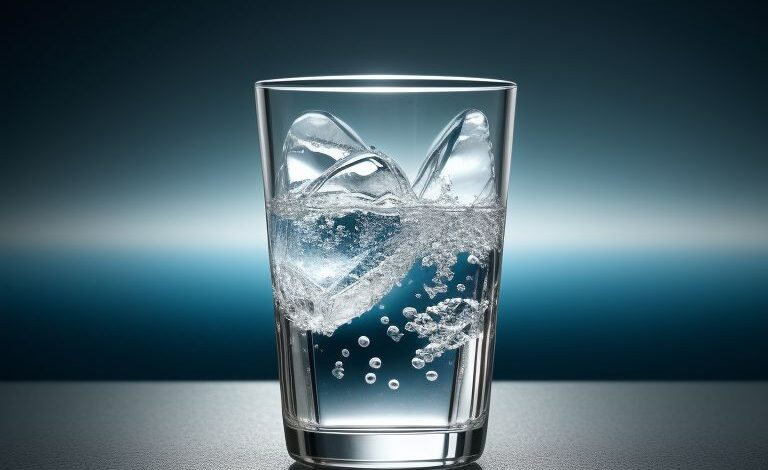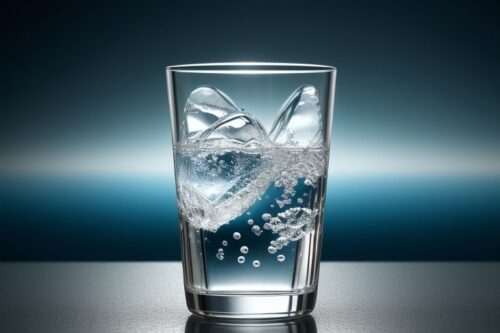Is Mineralized Water Good for You? A Comprehensive Guide to Benefits and Drawbacks

Is Mineralized Water Good for You? A Comprehensive Guide to Benefits and Drawbacks
Water is essential for life. We all know that staying hydrated is crucial for our health and well-being, but not all water is created equal. One type of water that has gained popularity recently is mineralized water, also known as mineral water. This water is rich in essential minerals like calcium, magnesium, and potassium, which are said to have various health benefits. But is mineralized water really good for you, or is it just another health trend?

In this article, we’ll explore what mineralized water is, its benefits, potential drawbacks, and how it compares to regular tap and filtered water. We’ll also help you determine whether mineralized water is right for you, so you can make an informed decision about your hydration habits.
What Is Mineralized Water?
Mineralized water, or mineral water, is water that contains naturally occurring minerals or has been artificially enriched with minerals. These minerals, such as calcium, magnesium, potassium, and sodium, can be beneficial to your health. Mineralized water can be sourced from natural springs or created through a process where minerals are added to purified water.
Natural Mineral Water is typically sourced from underground reservoirs and springs, where the water absorbs minerals from rocks. Some well-known natural mineral water brands include Perrier, San Pellegrino, and Evian.
Artificially Mineralized Water, on the other hand, starts as purified water to which minerals are added, mimicking the mineral content found in natural sources.
Types of Minerals Commonly Found in Mineralized Water:
- Calcium: Important for bone health and muscle function.
- Magnesium: Supports muscle and nerve function, and is vital for energy production.
- Potassium: Helps regulate blood pressure and maintain proper fluid balance.
- Sodium: Necessary for maintaining fluid balance, though high amounts can raise blood pressure.
- Bicarbonate: Helps maintain pH balance in the body and supports digestion.
The Benefits of Drinking Mineralized Water
Drinking mineralized water can provide various health benefits, primarily due to the essential minerals it contains. Here's an in-depth look at some of the most important benefits.
1. Supports Bone Health
Calcium is one of the main minerals found in mineralized water, and it plays a crucial role in maintaining healthy bones and teeth. Consuming enough calcium helps reduce the risk of osteoporosis, a condition characterized by weak and brittle bones. If you struggle to meet your daily calcium needs through food alone, mineralized water can be a helpful supplement.
2. Promotes Heart Health
Mineralized water often contains magnesium and potassium, which are known to support cardiovascular health. Magnesium helps regulate blood pressure, and studies have shown that it may reduce the risk of heart disease. Potassium also helps maintain healthy blood pressure levels by balancing the effects of sodium in the body.
Drinking mineralized water regularly can be a simple way to support heart health and reduce the risk of heart attacks, strokes, and high blood pressure.
3. Improves Digestion
Minerals like bicarbonate and magnesium found in mineralized water can aid in digestion by neutralizing stomach acid. This can be particularly helpful for those who suffer from acid reflux or indigestion. Bicarbonate acts as a buffer, reducing the acidity in the stomach and helping food move through the digestive system more efficiently.
In fact, some studies suggest that drinking mineralized water may even help prevent stomach ulcers and relieve symptoms of irritable bowel syndrome (IBS).
4. Enhances Muscle Function
Magnesium and calcium play vital roles in muscle function, including contraction and relaxation. Magnesium is known to prevent muscle cramps and spasms, while calcium ensures that muscles can contract properly. If you experience frequent muscle cramps or tension, especially after exercise, drinking mineralized water may help ease these symptoms.
5. Boosts Hydration and Electrolyte Balance
Mineralized water is an excellent source of electrolytes, including sodium, potassium, and magnesium. Electrolytes are essential for maintaining fluid balance in the body and supporting proper muscle and nerve function.
For athletes or those engaging in intense physical activity, drinking mineralized water can be a better option than plain water because it helps replenish lost electrolytes, keeping the body hydrated and energized.
6. Helps Maintain a Healthy pH Balance
The minerals found in mineralized water, particularly bicarbonate, can help maintain the body's pH balance. A balanced pH is essential for proper cellular function and overall health. While the body is typically good at maintaining its own pH, drinking water with a higher bicarbonate content can give it an extra boost, especially if you consume a lot of acidic foods and drinks.
Potential Drawbacks of Mineralized Water
While there are many benefits to drinking mineralized water, there are also some potential drawbacks to consider. It's essential to weigh these factors to determine whether mineralized water is right for you.
1. High Sodium Content
Some mineralized waters, especially those that are naturally sourced, can contain high levels of sodium. While sodium is an essential mineral, consuming too much of it can lead to high blood pressure, heart disease, and kidney problems.
If you're on a low-sodium diet or have been advised by a healthcare professional to limit your sodium intake, it's important to check the sodium content of the mineralized water you choose.
2. Cost
Mineralized water, particularly natural mineral water, tends to be more expensive than regular tap water or filtered water. For some people, the added cost may not be worth the potential health benefits, especially if they can meet their daily mineral needs through food and supplements.
3. Environmental Impact
The production, packaging, and transportation of bottled mineralized water can contribute to environmental pollution. Many bottles are made from plastic, which is harmful to the environment when not recycled properly. Additionally, the energy required to transport bottled water from natural springs to consumers around the world increases its carbon footprint.
To reduce environmental impact, consider opting for locally sourced mineralized water or using a mineral cartridge in your water filtration system instead of purchasing bottled mineral water.
4. Excess Mineral Intake
While the minerals in mineralized water can be beneficial, consuming too much of certain minerals, like calcium or magnesium, can lead to health issues. For example, excessive calcium intake can lead to kidney stones, while too much magnesium may cause digestive problems like diarrhea.
If you're already getting enough minerals from your diet, adding mineralized water may not be necessary and could even cause imbalances. It's always a good idea to consult with a healthcare professional to determine if you need to increase your mineral intake through water or other sources.
How Does Mineralized Water Compare to Other Types of Water?
When deciding whether to drink mineralized water, it's helpful to understand how it compares to other common types of water, such as tap water, filtered water, and spring water.
1. Mineralized Water vs. Tap Water
Tap water quality varies depending on where you live. In some areas, tap water may already contain beneficial minerals like calcium and magnesium, making it similar to mineralized water. However, in other areas, tap water may contain contaminants like chlorine, lead, or other harmful substances.
If you live in an area with clean, well-regulated tap water, you may not need to spend extra money on mineralized water. However, if you're concerned about water quality, investing in a good water filter or choosing mineralized water can help ensure you're getting clean and mineral-rich water.
2. Mineralized Water vs. Filtered Water
Filtered water is tap water that has been purified to remove contaminants like chlorine, lead, and bacteria. Depending on the type of filter you use, some minerals may also be removed. However, many water filters now come with mineral cartridges that add beneficial minerals back into the water, creating a similar effect to mineralized water.
If you're looking for a more cost-effective and environmentally friendly option, investing in a high-quality water filter with a mineral cartridge may be a good alternative to buying bottled mineral water.
3. Mineralized Water vs. Spring Water
Natural spring water is often mineral-rich and sourced from underground springs. It contains naturally occurring minerals like calcium and magnesium, making it similar to mineralized water. However, not all spring water is created equal. The mineral content of spring water can vary depending on the source, and some spring water may contain high levels of contaminants.
If you prefer natural sources of water, spring water can be a good option. Just be sure to research the brand and ensure that it meets safety and quality standards.
How Much Mineralized Water Should You Drink?
There’s no one-size-fits-all answer to how much mineralized water you should drink. In general, most people should aim to drink 8-10 cups (about 2-2.5 liters) of water per day, but individual needs may vary depending on factors like age, activity level, and overall health.
If you choose to drink mineralized water, you can incorporate it into your daily hydration routine. However, keep in mind that you may already be getting minerals from your diet, so there's no need to overdo it. As with anything, moderation is key.
Is Mineralized Water Good for You?
In conclusion, mineralized water can offer several health benefits, including improved bone health, heart health, digestion, and hydration. The essential minerals found in mineralized water, such as calcium, magnesium, and potassium, can help support various bodily functions and contribute to overall well-being.
However, it's important to be aware of potential drawbacks, such as high sodium content, cost, environmental impact, and the risk of excess mineral intake. For most people, drinking mineralized water in moderation can be a healthy addition to their diet, but it's not necessary to rely on it as the sole source of hydration.
Ultimately, whether mineralized water is right for you depends on your individual health needs, dietary habits, and environmental concerns. If you're unsure, consult with a healthcare professional to determine whether adding mineralized water to your routine could benefit your health.
By understanding the pros and cons, you can make an informed decision about whether mineralized water is the best choice for your hydration and overall well-being.

